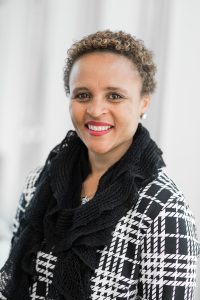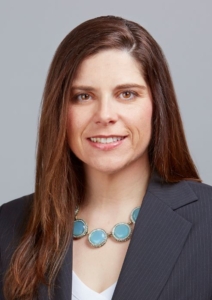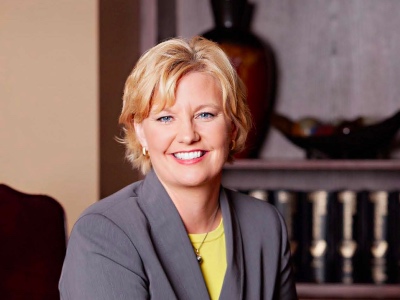 Looking back over her career, PwC’s Busisiwe Mathe says she wishes she had been as comfortable in her own skin when she first started as she is now; however, she understands that acquiring that confidence is all part of growing.
Looking back over her career, PwC’s Busisiwe Mathe says she wishes she had been as comfortable in her own skin when she first started as she is now; however, she understands that acquiring that confidence is all part of growing.
“I believe that there was a lesson I needed to learn in everything I have experienced in my career,” she says.
A Varied Career Brings Success
Mathe began her career with PwC in 2004 and throughout her tenure has garnered experience in external and internal audits, technology transformation projects, business continuity management, cybersecurity and privacy, including stints abroad in the New York and Atlanta offices.
As the chairman of the South Africa PricewaterhouseCoopers Governing Board, Mathe serves as a member on the PwC Africa Governance Board and currently oversees the firm’s Africa Cyber and Privacy business.
It’s a crucial line of business, considering the prevalence of cyberattacks, including ransomware, that have increasingly plagued companies both globally and locally in the last 18 months.
While the attacks used to be concentrated to one specific sector or industry, they have become more widespread across all industries, and are moving from information technology into the operational technology environment. That concern was noted in PwC’s 22nd Annual Global CEO Survey, which showed cyber threats staying among the top 5 risks identified by CEOs.
Helping Women Achieve Success
Mathe believes that one of the top barriers for women in the industry is actually based on a false notion—the fact that most women view it as a technical industry where you have to have earned a technical or IT-related degree. However she finds that to be restrictive, as cybersecurity has both technical and non-technical aspects and thus offers a wide range of career lines one can follow. But that assumption leads to a second challenge, which is that the lack of women in the industry means that it is harder for young woman looking to enter the profession to find mentors or others to look up to.
She encourages women considering the industry to realize that the sky is the limit, and the variety of positions offered make cybersecurity a fantastic place to thrive. And she encourages her peers to focus on mentoring the younger generation—making it a priority to support STEM initiatives or even start their own to encourage women pursuing these important fields.
PwC is a supportive place in that sense, as Mathe underscores that the PwC Africa leadership team is firmly committed to diversity and inclusion, having adopted the Global Inclusion Index locally as a tool to continuously assess progress. In addition, all partners and staff take mandatory unconscious bias training, focusing on four dimensions of diversity: gender, race, sexual orientation and generational diversity. That has paid off in more women achieving leadership roles; in fact 45 percent of the partners named in the most recent cycle of promotions were women.
A Full Life Outside Of Work
“My family is my foundation; I would not be where I am had it not been for my strict, yet loving, father who told me at a very young age that I could achieve anything I put my mind to, and my mom who played a significant part in the woman, wife and mother I am today,” Mathe says. She carries out those lessons with her own family, which includes a supportive husband, whom she calls “one of her biggest cheerleaders,” and eight-year-old twin boys.
She also coaches and mentors students and young professionals through partnerships with organizations like Youth Leadership and Entrepreneurship Development (YLED) and the DreamGirls Academy. “I enjoy mentoring and coaching both at work and outside work by partnering with NGOs that empower young girls in believing and shaping their dreams,” she says.


 By Dale Meikle, PwC
By Dale Meikle, PwC By Nicki Gilmour
By Nicki Gilmour